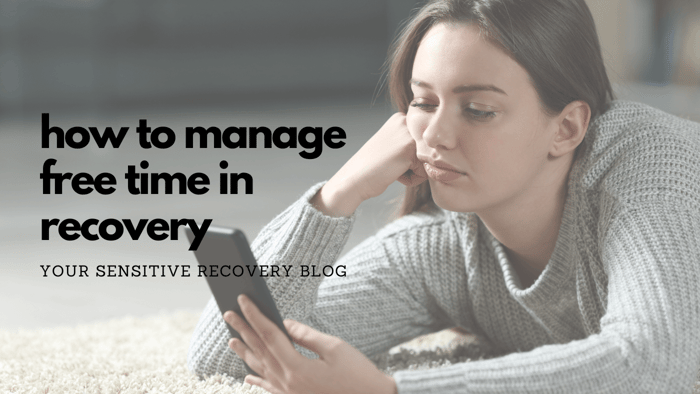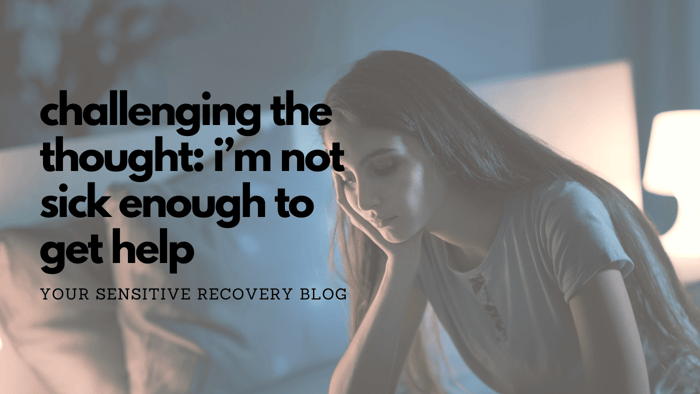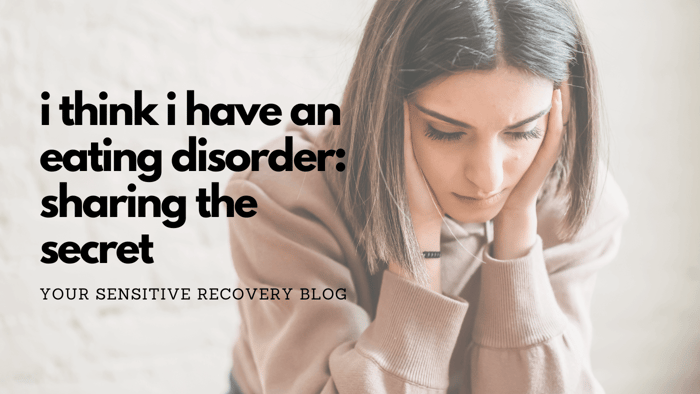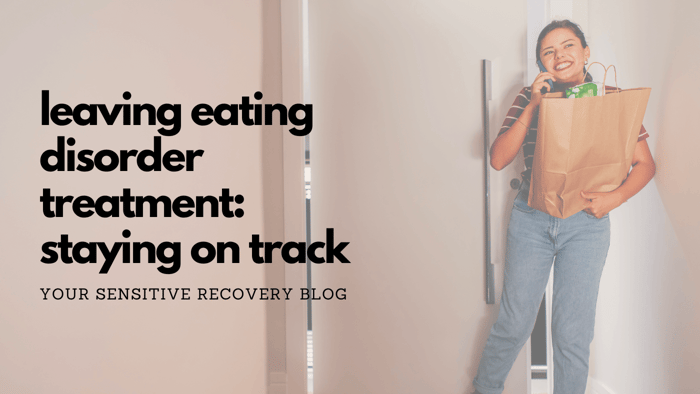For many people in recovery, unstructured time can be downright frightening, especially for those transitioning out of full or part-time treatment. Free time is often equated with there being more room for critical thoughts and unhealthy behaviors to run wild.
An important life skill and critical part of recovery is learning how to structure time in a healthy manner that offers a balance between work, play, and rest. The first step of this skill is being able to recognize and challenge the disordered thoughts that arise regarding productivity and relaxation. Read on for some of the some of these common thoughts.
“I feel like I should be more productive.”
For thoughts like this, I like to help my clients confront their definition of productivity and where it comes from.
For someone with an eating or activity disorder, productivity is often associated with a go-go-go mentality, checking multiple items off a to-do list, and juggling several tasks at once.
But what is the actual definition of productivity? “The state or quality of producing something.” Think beyond typical “work” for a second and bring to mind all of the things worth producing; fragrant flowers in your garden, a touching post for your blog, or a beautiful array of chords from your guitar. That feels pretty different, right?
“Ok, I like that, but I can’t focus on those activities. My mind keeps going to thoughts about food and my body.”
One of the most common eating disorder symptoms is a preoccupation with food and weight, and for many, this preoccupation can actually become worse when engaging in behaviors. For example, when restricting, your brain is sending you constant thoughts of food, hoping you will “remember” to feed yourself. So when I challenge this thought for clients, I will often ask, “Are you following your meal plan?”
Another way to cope with this thought is mindfulness. Just like in meditation, the goal is not to rid yourself of all thoughts. It is actually to decrease your attachment to them. We create suffering when we attach to unhealthy thoughts and allow them to multiply.
You are not responsible for the first thought that pops into your head, but you are responsible for whether or not you let that thought spin on and on.
“But I don’t deserve free time. I am so behind where I should be in life.”
Eating disorders thrive on self-hate, and this thought is full of it. What I could say to this is, “Everyone is on his or her own journey. Don’t compare and despair. Blah, blah, blah.” I get it. It’s totally true but the Pollyanna-sunshine-and-rainbows response doesn’t always cut it.
So let’s look at it this way. The same old thinking will get you the same old results. Acting as if you are undeserving and are so behind in life does not actually get you ahead in life or any closer to feeling deserving and worthy. It’s a trap.
Self-hate is always a trap.
Compassion is not pity and it is not an excuse. It will get you to where you want to be faster than beating yourself up EVER will.
Free time doesn’t have to be scary. For now, let your meal plan be your structure. Factor in time for sessions with your treatment team, time with loved ones, and time for self-care. Your recovery will thank you, and so will your sanity.
This blog post was originally written for RecoveryWarriors.com
✨ Josie Munroe, LMFT is a licensed therapist and owner of JosieMunroe.com and Your Sensitive Recovery As a recovered clinician and Highly Sensitive Person, she loves supporting others on their journeys to form new, empowered relationships with food, their bodies, and their sensitivity. Join the newsletter for a weekly boost of hope and inspiration. You deserve a recovery that works for you! ✨





